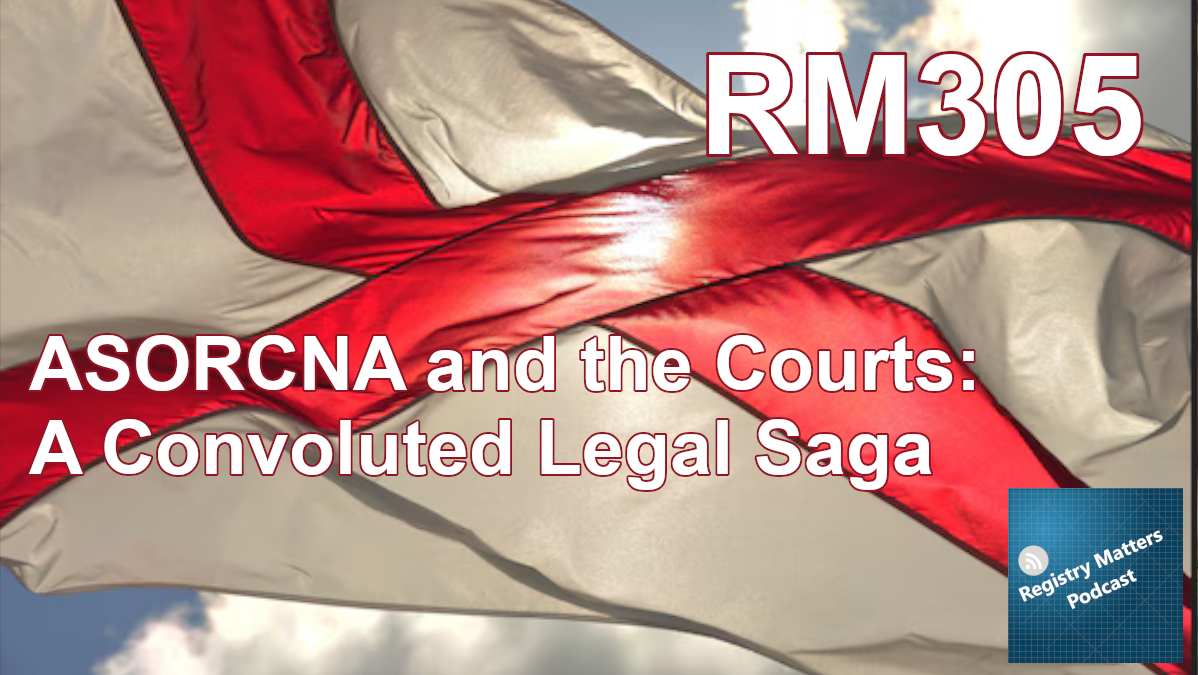In this episode, we delve into the intricacies of the McGuire case and its challenge to Alabama’s Sex Offender Registration and Community Notification Act (ASORCNA). We explore the key provisions contested as unconstitutional, including residency, employment, loitering, ID, and internet dissemination regulations. Join us as we navigate through the court’s lengthy 162-page opinion, discuss the various constitutional claims brought by the plaintiffs, and shed light on the complexities and implications of Alabama’s stringent registry laws. We also examine the potential outcomes and next steps following the court’s partial ruling in favor of the plaintiffs.
[9:21] In this segment, the podcast team discusses the recent legal developments surrounding Alabama’s PFR Registry and Community Notification Act (ASCORCNA). They revisit the case of McGuire, which challenged various provisions of the Act. Key points include the extensive litigation history of McGuire’s case, the burdens of proving unconstitutionality, and the complexity of ASCORCNA’s provisions. Despite most of the Act being upheld, the court found the residency provision to be facially unconstitutional under the First Amendment. The team speculates on the potential appeal process and its implications, noting that any changes affirmed by the Eleventh Circuit could affect residency restrictions in Alabama, Georgia, and Florida. [27:30] We discussed the case of the Commonwealth of Pennsylvania vs. George Torsilieri. The Pennsylvania Supreme Court examined the constitutionality of the state’s revised Sexual Offender Registration and Notification Act (SORNA) Subchapter H. Torsilieri, convicted of aggravated indecent assault, challenged his lifetime registration requirement under Subchapter H, claiming it violated his due process rights and was based on false assumptions about recidivism among sexual offenders. Initially, the lower court sided with Torsilieri, declaring Subchapter H unconstitutional. However, the Pennsylvania Supreme Court ultimately reversed this decision, stating that Torsilieri failed to prove the registration requirements were punitive or unconstitutional. The discussion also touched on the implications of this ruling for future legislation and legal strategies in Pennsylvania. [42:07] In this segment, Chance clarifies the recent California case regarding the reclassification of attempted crimes. He explains that the California Department of Justice is amending its policy to differentiate between attempted and completed crimes for tier designation. Attempted crimes require specific intent and substantial steps toward the crime’s completion but are generally punished less severely. The DOJ’s previous error was treating attempted crimes the same as completed ones, leading to incorrect tier assignments. The new policy aims to ensure that attempted offenses are properly classified, potentially reducing their tier designation.https://www.registrymatters.co/podcast/rm305-asorcna-and-the-courts-a-convoluted-legal-saga
Leave voicemail: 747-227-4477
Email us: registrymatterscast@gmail.com
Support us on Patreon: https://www.patreon.com/registrymatters
Join the Discord server: https://discord.gg/6FnxwAQm57
Want to support Registry Matters with some swag: https://shop.spreadshirt.com/registry-matters
Apple Podcasts: https://itunes.apple.com/us/podcast/registry-matters/id1305039280
Google Play Music: https://play.google.com/music/listen?u=0#/ps/Icuxbpzvyti7wtoredipbtiojqy
RSS: https://www.registrymatters.co/feed/podcast/
Spotify: https://open.spotify.com/show/3d75P7Kc37n2l79m89F9KI
YouTube: https://www.youtube.com/registrymatters
The Registry Matters Podcast’s mission is to cover issues surrounding the Registry. We cover cases that will peel back the veneer of what we need to do to change our lives for the better. We cover news articles that spark conversations about the total insanity of this modern day witch hunt. This podcast will call out bad policy and call out those that are making bad policy.
To change things for the positive, we need to act. We are 6-7-8-900k strong. With that many people, plus their friends and family, over a million people are affected by the registry. We should be able to secure donations to hire lawyers and lobbyists to move the agenda in our favor. We need our people to be represented.


Leave a Comment